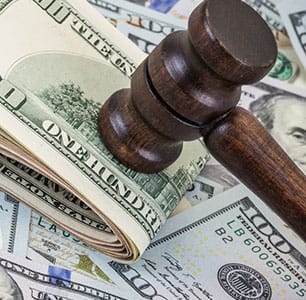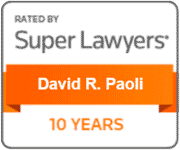Banking Misconduct/Lender Misconduct
Financial products are becoming increasingly more complicated and too many are designed to take advantage of hard-working consumers. Despite state and federal laws designed to protect consumers, unscrupulous financial institutions and retailers routinely disregard consumer protection laws by
- unfairly and deceptively providing predatory financial products
- imposing charges for worthless add-ons, such as credit protection, identity theft protection, and useless warranties and insurance
- reporting false information on credit reports
- bringing lawsuits to attempt to collect unlawful charges or debts that consumers do not owe
- unlawfully repossessing personal property or wrongfully foreclosing on homes
Although extensive state and federal consumer protection laws are on the books to protect Montana’s consumers from unfair, deceptive or downright fraudulent business practices, many financial institutions fail to comply with the law unless they are held accountable. Lenders are also required to conduct their business with you in trust and according to their fiduciary responsibilities, but there are times when financial institutions fail to operate in your best interest. Depending upon the circumstances, consumer protection laws can provide for statutory damages (in addition to actual damages), an award of up to three times the actual damages, payment of the consumer’s attorney’s fees, and punitive damages (damages to punish and deter similar bad conduct in the future).
However, if a consumer waits too long to bring a case they may not be able to recover anything for their injuries. Some consumer protection claims must be filed in court within a year after the violation. If you or someone you know has been hurt by an unfair or deceptive business practice, please contact our office as soon as possible to request a free consultation and to learn more about our experience representing consumers like you.
Predatory Financial Products
Financial institutions and retailers can take advantage of consumers by placing them in predatory financial products. Predatory lending comes in many different forms, but all involve taking advantage of a consumer’s financial situation by charging unfairly high interest rates or tacking on unconscionable fees or charges. Predatory lending drains families’ financial resources, destroys the benefits of property ownership, and can lead to loan defaults, repossessions, and even foreclosure.
Although predatory lending involves a wide array of abusive practices, here is a brief description of some of the most common abuses:
- Excessive fees or costs. The cost of points and fees are not necessarily reflected in a loan’s interest rate and because these costs can be financed, they are easy to downplay or hide altogether. Sometimes unlawfully high interest rates are hidden by inflating the cost of retail products sold on credit or by requiring the consumer to purchase additional products like credit protection.
- Kickbacks. When a salesperson or financial institution gives a loan with an inflated interest rate (i.e., higher than the interest rate the consumer actually qualified for), tacks on excessive or unnecessary charges (i.e. for insurance, inspection fees, etc.), and is paid to encourage the sale of products that are not in the consumer’s best interest.
- Unnecessary products. Consumers may pay more than necessary because lenders tack on unnecessary insurance or other products to the loan or the offer of credit.
- Short-term predatory lending. Short-term lenders prey on consumers who are already struggling financially. These businesses suggest that payday loans, cash advances, car title loans, or tax refund anticipation loans will help resolve a consumer’s immediate financial needs, but in reality these products have extremely high annual interest rates, often work to trap consumers in a cycle of revolving and increasing debt, and put their personal assets at risk.
If you or someone you know has been hurt by predatory lending, contact Paoli Law Office to request a free initial consultation.
Credit Reporting/Identity Theft
Credit reports are the foundation of a consumer’s financial life; impacting their ability to find a job, obtain housing, their interest rates, and even their insurance rates. In the past four years alone, the Consumer Financial Protection Bureau has handled approximately 143,700 complaints regarding credit reporting. Consumers who have been the victim of identity theft, whose credit files have been merged with the files of other people, and who have resolved their debts through payment or bankruptcy discharge often encounter difficulty removing inaccurate information from their credit report.
If you have tried to correct your credit report and are suffering damage to your credit because of inaccurate reporting, you have rights under the Fair Credit Reporting Act. The lawyers at Paoli Law Firm, P.C. can help you enforce those rights. Call us to request a free consultation at 406-542-3330 or 800-332-4308.
Unfair Debt Collection
Amazing as it may sound, credit card companies, debt-buyers, and banks sometimes harass consumers to pay debts
- without having sufficient information to establish the amount of the actual debt
- verifying that the person actually owes the money
- when the consumer is not behind on their payments
When mere harassment does not work, creditors are quick to file debt collection lawsuits in hopes of getting a judgment so that they can seize a consumer’s wages and assets. In fact, most civil lawsuits are brought by corporations attempting to collect consumer debt.
In some cases, unfair debt collection can even result in the wrongful foreclosure of a home. Wrongful foreclosures happen in a variety of ways, but the most common are:
- “Dual Tracking” – where the bank moves forward with a mortgage modification and a foreclosure at the same time. The problem is that if the modification is denied, the consumer then has no opportunity to avoid foreclosure through other means such as sale of the home.
- Encouraging default – where the consumer was told that they should default on the mortgage to get a mortgage modification
- Foreclosing where the consumer did not actually default on a mortgage
- Failing to honor an agreement to modify a mortgage
- Foreclosing without having the proper authority (i.e. lack of standing)
If you or someone you know has been injured as a result of unfair debt collection practices, contact our office to request a free initial consultation. Our lawyers can help stop the abuse and help hold the creditor accountable.











